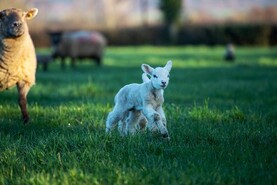Vets across the country are reporting mixed levels of rumen fluke in cattle.
With weather and ground conditions ideal for both rumen and liver fluke, farmers are being advised to test dung samples and take appropriate dosing action.
In Tipperary, Kieran O’Mahony of Glen Vets in Aherlow reported “quite a bit” of rumen fluke last month among his clients’ herds.
“We seem to have a particular problem with it around here for the past number of years,” he told the Irish Farmers Journal.
“Clinically, weanlings are the worst affected. We are certainly seeing more than last year but dairy farmers in the area struggle with it quite a bit, although their cows are less likely to show clinical signs.”
He advises his farmers to confirm the problem with dung samples and treat cattle using Zanil or Levafas Diamond.
Kerry vet Donal Murphy said almost all dung samples tested by his practice haven been positive for rumen fluke eggs.
However, he added that he had not seen many clinical manifestations of rumen fluke in animals.
“Rumen fluke are prolific egg shedders so you would expect to see positive results,” he remarked.
“I’m not really sure of the clinical importance, particularly in adult cows, where it’s hard to see how much damage it’s doing.”
Nonetheless, Murphy advises all his farmer clients to use at least one dose that will cover rumen fluke in their winter dosing regime.
Offaly vet Donal Lynch said he had seen little evidence so far of a major rumen fluke problem aside from a small number of isolated cases.
“Those tend to be five- and six-month-old cattle that were bucket-reared calves, not grazing with cows,” he explained.
The Tullamore vet said rumen fluke had been more of an issue in recent years.






 This is a subscriber-only article
This is a subscriber-only article










SHARING OPTIONS: